16 Sleep Apnea
Symptoms
_..
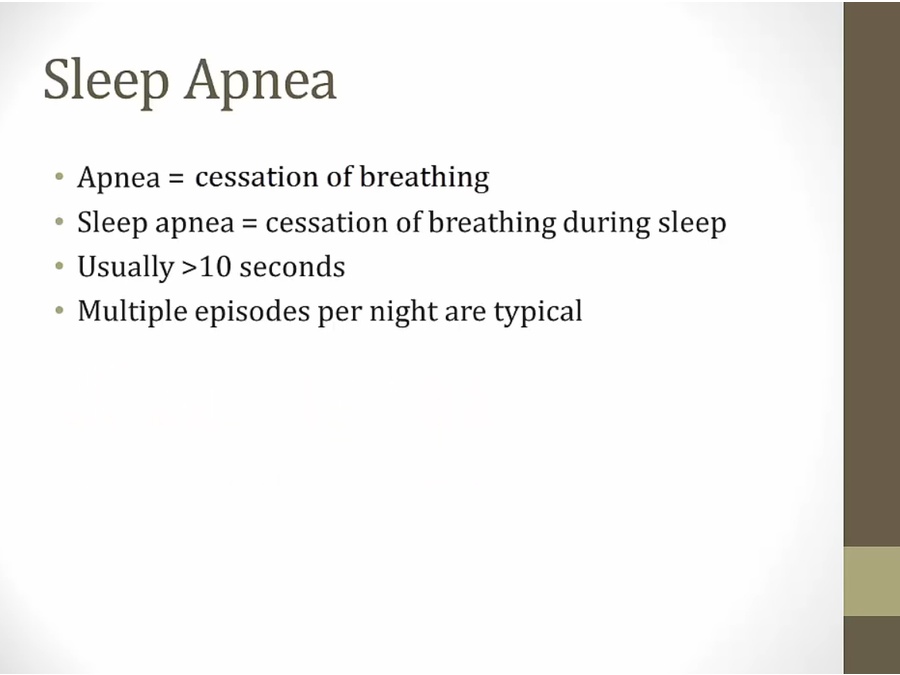
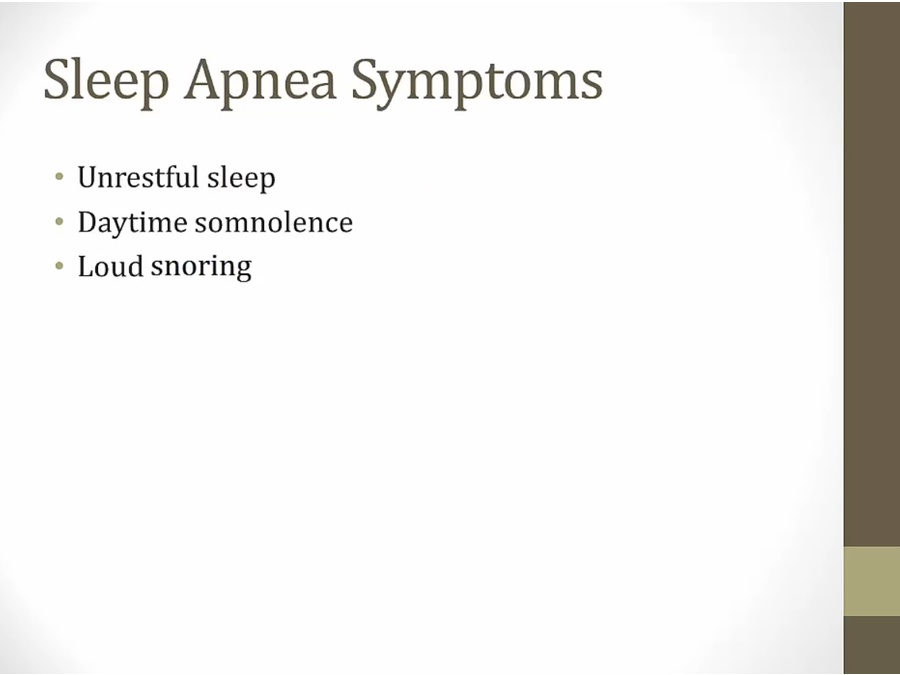
woken up by apnea but not enough to regain consciousness
poor flow: loud snoring
_..
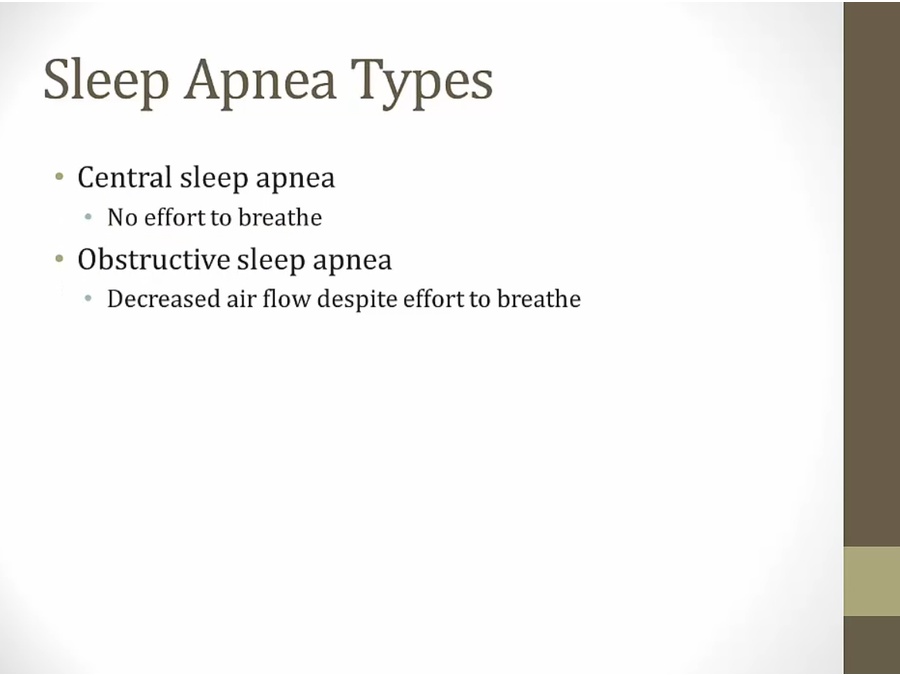
central, rare
Central
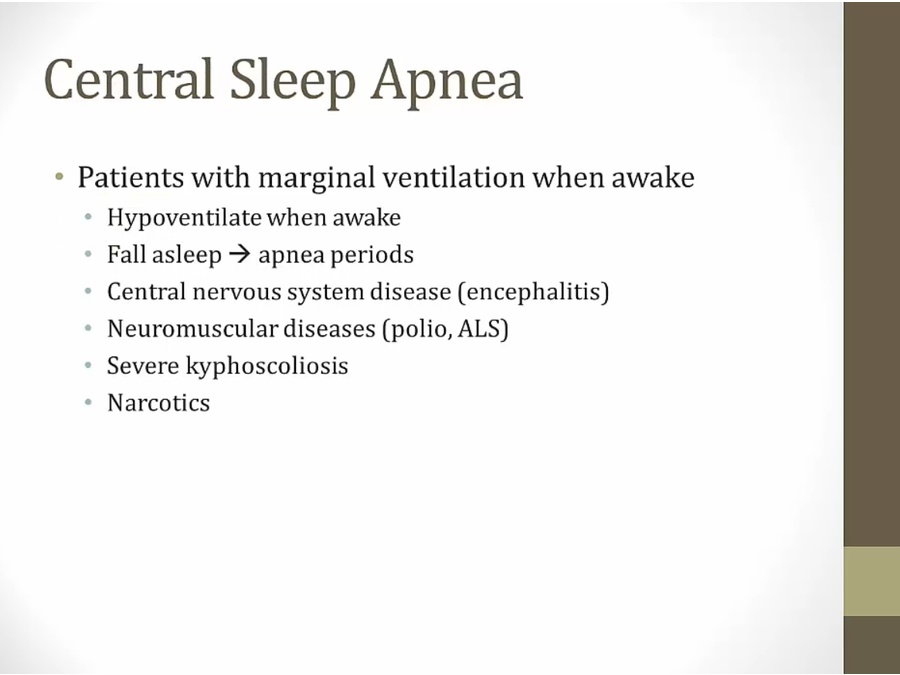
encephalitis: depressed brain function
hypoventilating all the time. Fall asleep, apnea
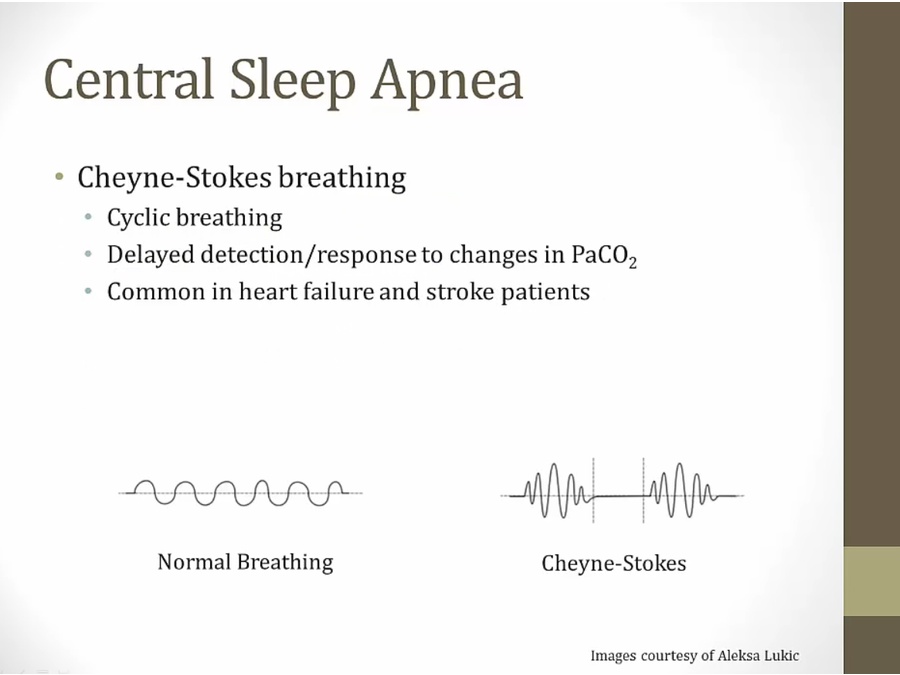
rapidly bringing air in and out of lungs: lower CO2
brain over responds, shuts down respiratory center: apneic, increased CO2
rapid breathing again
HF patients common
Patients with CHF have chronic hyperventilation with hypocapnia, which induces apnea during sleep when the partial pressure of carbon dioxide (PaCO2) falls below a certain level ("apneic threshold"). Apnea causes excessive buildup of CO2(hypercapnia); this stimulates a ventilatory response that overshoots (hyperpnea), causing the PaCO2 to again fall below the apneic threshold. This cycle of apnea and hyperventilation is further perpetuated by prolonged circulation time between the lungs and brain, which results in a discrepancy between PaCO2 levels sensed by central chemoreceptors and PaCO2 concentration in alveoli. CSB is also seen in neurologic disease (eg, stroke, brain tumors, traumatic brain injury) and is frequently a poor prognostic sign.
Obstructive
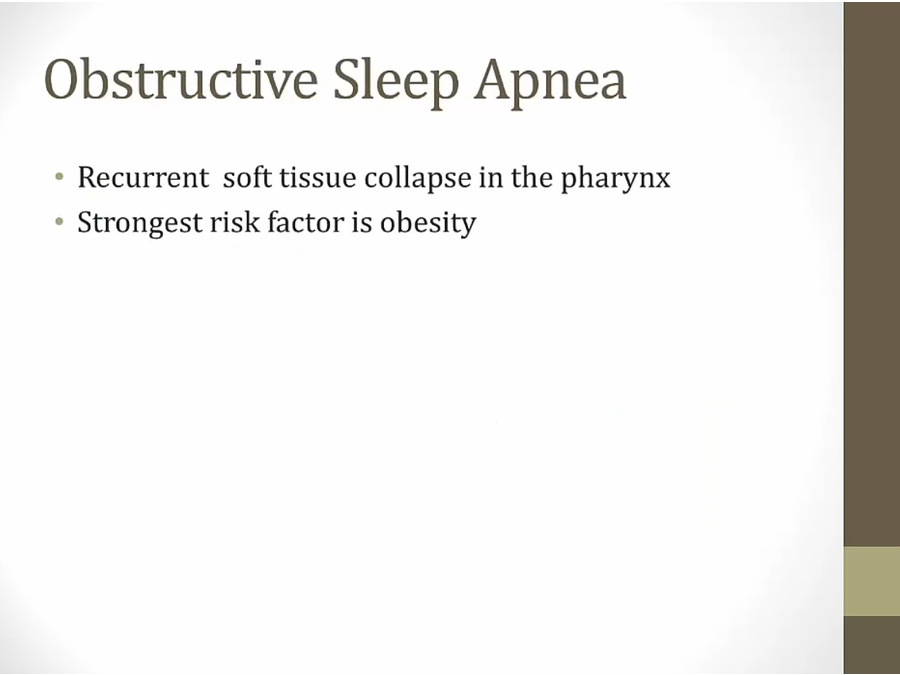
look in back of throat of obese patients: small opening that can close during sleep
Complications
_..
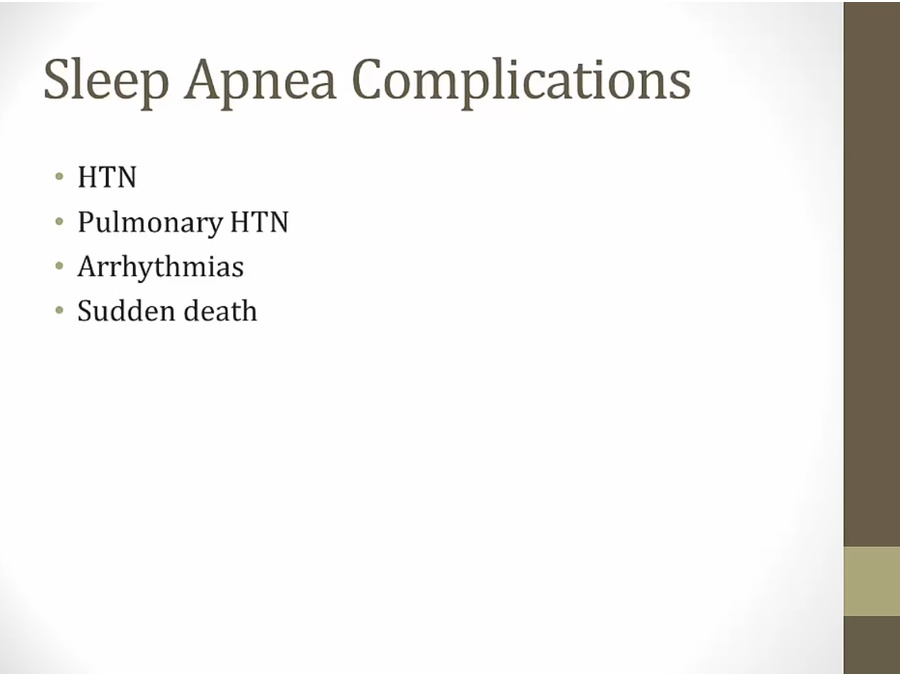
day time somnolence
low levels of O2 at night, ramp up of sympathetic system: HTN and cardiovascular complications
hypoxia: pulmonary vasoconstriction
die in sleep: prolonged period of apnea, ventricular arrhythmia, cardiac arrest

mild polycythemia
Diagnosis and Treatment
_..

_..

CPAP: continuous positive airway pressure
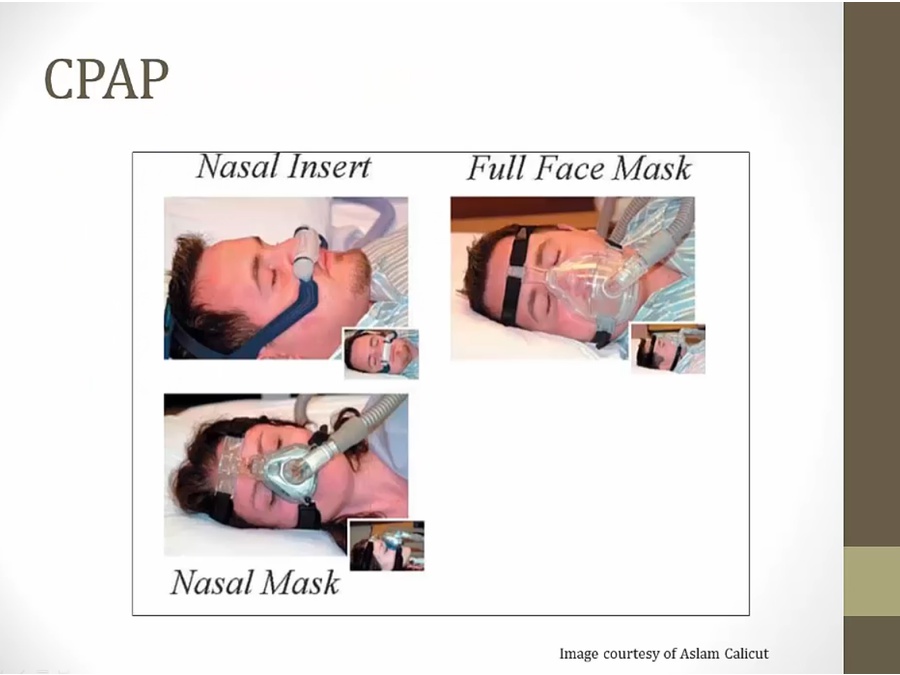
Last updated